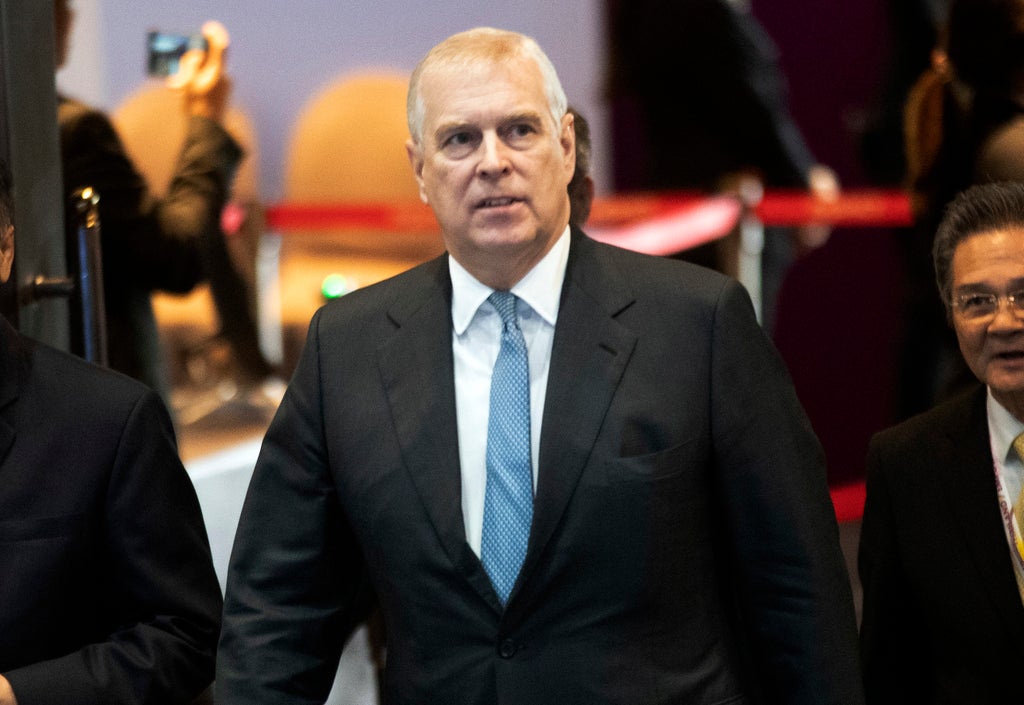
A lawyer for Virginia Giuffre has said she is unlikely to accept a legal settlement that does not “hold Prince Andrew to account” in her sexual assault lawsuit against the duke.
This week, the Queen’s second son – who is fighting the civil US case as a private citizen – submitted a 41-point denial of Ms Giuffre’s claims, which include allegations that he sexually assaulted her when she was 17 years old.
Reportedly sparking some concern at Buckingham Palace, the Duke of York’s lawyers demanded a trial by jury, potentially setting him up to become the first member of the modern royal family to submit to being cross-examined over serious allegations – in the Queen’s platinum jubilee year.
However, some experts have suggested that his surprise move this week, which included a denial that he was a close friend of the now convicted Ghislaine Maxwell, could be an attempt at bluffing, and that the duke may still try to settle in order to avoid damage to the monarchy.
But Ms Giuffre’s New York lawyer, David Boies, has repeatedly warned that his client is not interested in a purely financial settlement.
“What’s important for Virginia is to vindicate herself and the other victims. Not to let someone escape responsibility, just because of their wealth and power. To hold Prince Andrew to account. But how that vindication is accomplished is still open [to discussion],” he told the Telegraph.
Mr Boies said he believes Ms Giuffre “would be unlikely to settle in a situation in which somebody just handed over a cheque”, adding: “So if Prince Andrew maintains, ‘I've never heard of this person’, ‘I don't know who she is’, ‘the photographs are fake’ – then I don’t think that we would want to settle on that basis.”
He added: “That said, if you had a settlement that was large enough to be, in effect, a vindication, then it’s something we would obviously look at.”
Described this month by a former federal prosecutor as “the greatest deposition taker in modern American jurisprudence”, Mr Boies said: “We’re looking forward to confronting Prince Andrew with his denials and attempts to blame Ms Giuffre for his own abuse, both at the deposition and the trial.”
He added: “But an unfortunate fact for him is that if you say these things when you’re filing papers, it becomes really hard to sustain that under cross-examination. And when you can’t sustain those broad denials, you’re not just back to ground zero, you’re behind, because you’ve lost your credibility.”
The duke told the BBC’s Newsnight programme in 2019 that he had “no recollection of ever meeting this lady, none whatsoever”, and – in his denial of dancing with his accuser at a London nightclub – claimed to have been left unable to sweat after serving in the Falklands conflict.
Earlier this month, Manhattan federal court judge Lewis Kaplan rejected Prince Andrew’s bid to have Ms Giuffre’s case against him thrown out.
Media lawyer Mark Stephens has warned that a trial, along with the legal proceedings before it, could threaten the existence of the monarchy by sparking a “debate about the relevancy and appropriateness of the royal family”.







